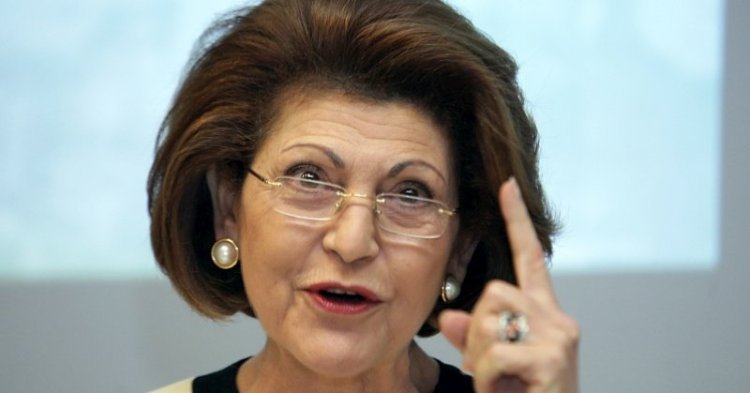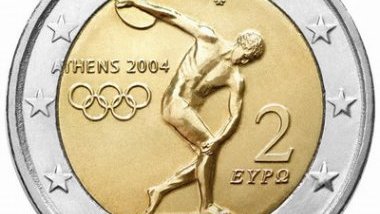You were appointed as Commissioner responsible for sport in February. What is your programme for the years to come?
AV: When I took over my new responsibilities in February, the timing could not have been better as with regards to sport. Article 165 of the new Treaty on the Functioning of the European Union gives the European Union a mandate to develop proposals "aimed at […] developing the European dimension in sport, by promoting fairness and openness in sporting competitions and cooperation between bodies responsible for sports, and by protecting the physical and moral integrity of sportsmen and sportswomen, especially the youngest sportsmen and sportswomen".
Our role in sport policy is first and foremost an opportunity to better promote sport and physical activity. I also welcome the fact that the Treaty emphasises the social and educational importance of sport. This is an area where the EU can add value to the many sporting activities already carried out at national, regional and local levels.
I plan to table proposals for an “EU agenda for sport” around November. My objectives are to increase political cooperation on sport issues and to launch an EU Programme for Sport, which will financially support a range of sport projects across the EU.
The new EU agenda for sport will certainly support health and physical activity, social inclusion, education and training in sport.
I am keen to listen to the views of the sport movement. I met representatives of a wide range of sport organisations at the EU Sport Forum in Madrid on 19-20 April and I have launched an online consultation. I want to be ambitious but we also need to prioritise to take account of the current economic situation and complex nature of the policy area.
The new EU agenda for sport will certainly support health and physical activity, social inclusion, education and training in sport. I believe we need to increase support for sport structures based on voluntary activities such as local clubs and sport associations. I also want to address abuses in sport. I am committed to increasing cooperation among Member States in the fight against doping and to help them tackle match-fixing, corruption and abuse of young people.
I am working closely with sport ministers on the challenges we face. At the first formal Sport Council, held on 10 May this year, the Commission received overwhelming support for our approach and our priorities.
In 2009, the Commission has launched preparatory actions in the field of sport. What has been achieved yet? How will you use the European Year for Volunteering to promote sport?
AV: The preparatory projects we have launched are essential because they will enable the Commission to identify future actions and good practices that will serve as a basis for the future sport programme. In 2009 we provided around 4 million euros in funding for 18 transnational projects, involving more than 150 organisations. I had the opportunity to meet some of the project leaders at the EU Sport Forum in Madrid. I was impressed by their enthusiasm and the quality of the projects.
Our Eurobarometer survey in March looked, among other things, at volunteering in sport. 7% of the respondents said they volunteer to support local sport activities. I have been in contact with Commissioner Viviane Reding, who is responsible for the European Year of Volunteering 2011, and I am convinced that this initiative will contribute to greater recognition of the value of volunteering in sport.
What has been achieved since the adoption of the White Paper on Sport and its Pierre de Coubertin Action Plan?
AV: The Pierre de Coubertin Action Plan runs for five years until late 2012. Thanks to good cooperation from sport organisations and the Member States, we have already implemented or launched 90% of the 53 actions. But allow me to highlight one fundamental aspect of the White Paper that is sometimes overlooked.
Since its adoption in July 2007, the White Paper has had an important influence on the structure of European sport. For example, a European social dialogue committee has been created in football, with UEFA setting up a strategic council which involves the leagues, the players and the clubs in its decision making process. New representative associations have also been created.
• promote fair play
• fight doping
• protect young athletes - amateur and professional
• combat racism and violence
• promote grassroots sport and lifelong amateur sport for all, so Europeans have a healthy lifestyle from pre-school to old age.
Today we witness more dialogue between sport stakeholders and it is much easier for the Commission to consult sport organisations as they are better structured and represented. Regular and structured dialogue with the European sport movement has been a key condition for implementing the 2007 White Paper on Sport and is the basis for the preparation of our future initiatives. This, for me, has been one of the main, unheralded achievements of the White Paper.
Should the relationship between sport and the media go further than the economic aspects? If yes, which values should be protected and promoted?
AV: Sport and media need each other. Television is the number one source of income for professional sport in Europe, and sport events increase their audiences. As media are an essential source of income for the majority of professional sports, it is important that those incomes are secured, not only for sport organisers but also for the benefit of grassroots sport. Solidarity between professional and semi- or less professional sports must be translated into opportunities for the latter, allowing them to generate income and reach their audience. It is also important for media to do more to feature women in sport and the fight against gender stereotyping. To conclude, I think that media which profit from sports should take their responsibilities and contribute to promoting grassroots sports and its important social and educational role.
Sport and Citizenship recently received the support of the European Commission, via the “Europe for Citizens” Programme. What are your expectations regarding the think thank?
AV: The “Europe for Citizens Programme” comes under the remit of Vice President Viviane Reding, who is in charge of Justice, Fundamental Rights and Citizenship. That said I am sure that she would be the first to say that the Commission expects that, as a beneficiary of EU funding, your organisation should make a tangible contribution to the objectives of this programme. These are to encourage citizens to feel part of the European project, to develop a sense of European identity and ownership of the EU, and to enhance mutual understanding among Europeans. As an organisation devoted to sport and citizens, you are focused on an area that connects millions of people. I encourage you to highlight the values that are common to sport and to Europe, such as respect for others, fair-play, solidarity and social inclusion. I wish you every success in linking your diverse audience (athletes, amateur sportsmen, academics, government and non-governmental institution). I also hope that you can reach out beyond specialist groups to the public at large.



1. On 27 October 2010 at 14:07, by George Brunt Replying to: Androulla Vassiliou on Sport
Replying to: Androulla Vassiliou on Sport
It is disappointing to see one key stake in the EU sport policy completely ignored. Sport is a major factor in building common or different national identities.
This is the reason why movements for regional independence in Europe fight to have “national” teams (Catalonia and Scotland for instance).
How disappointing to spend so much time thinking of an EU sport policy without even considering sport as an ingredient to foster a European identity by organising competitions where Europeans fight under the same flag.
It is not even as it was a preposterous dream. The Ryder Cup (not mentionned here!) which was held this year early October shows how successful such a competition can be. People waving the European flag, and singing “Eu-rope”... and it was in Great Britain!
Many things can be done to repeat the example of the Ryder Cup. Just two very practical suggestions:
– Other continental competitions exists, unfortunately often under the radar. The Commission should care about them and grant some subsidy to the European team if they wear the European flag. The IAAF Continental Cup of athletics saw Europe win this year at Split with little media coverage and without even wearing the European flag.
– Matches of the “Europe XI” (who last played in 2007 at Old Trafford) team should be made more regular even if they are only in a friendly format. The team should wear the European flag and play countries instead of clubs or “World XI” teams. A Europe vs Brazil, or Europe vs Argentina could be organised with the anthem and the flag being used for Europe and the opposition. These are practical step to create a shared identity via sport in Europe.
It seems to me that for the moment the Commissioner can’t see the forest for the trees...
Follow the comments: |
|
